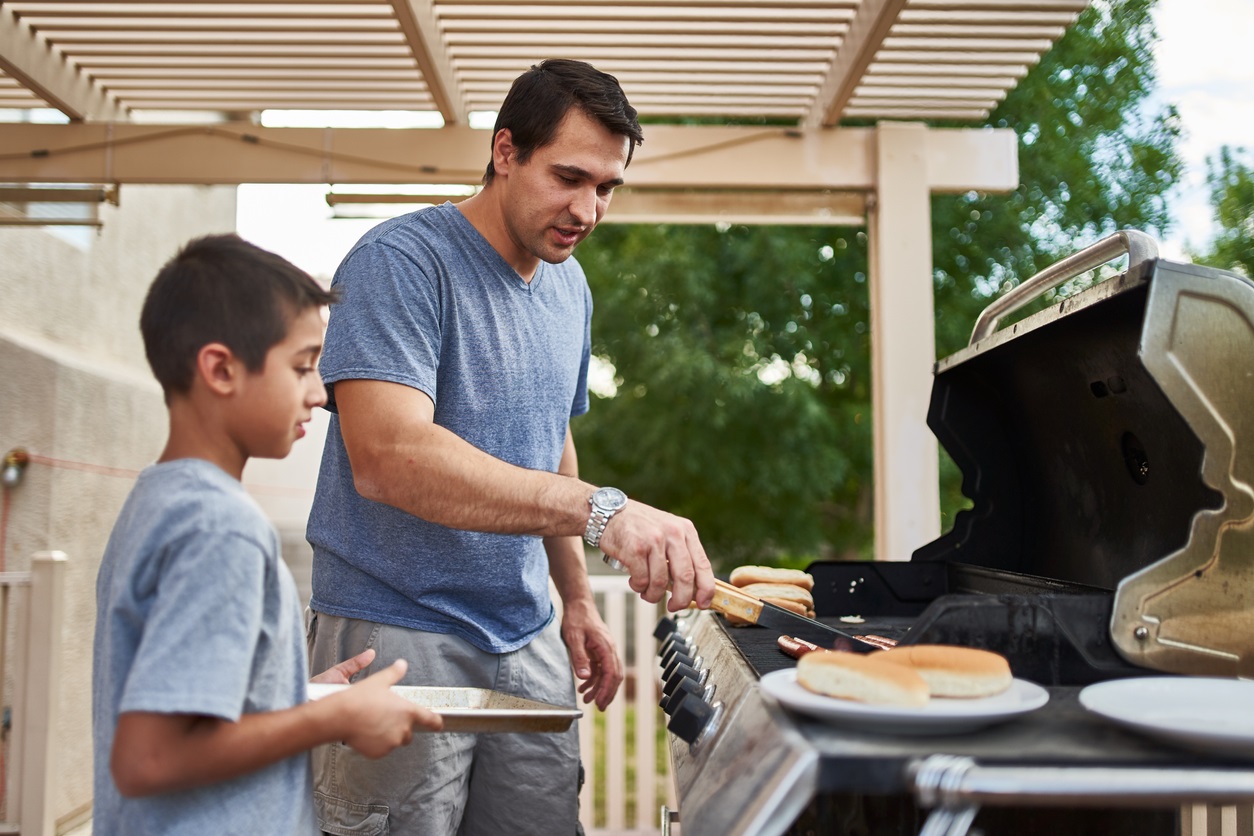
As COVID-19 restrictions ease, many people are eager to resume their annual summer barbecue, plan a picnic with friends or otherwise enjoy the outdoors with their loved ones.
While these types of outdoor activities are generally considered to have a lower transmission risk than indoor activities, it's still important to take precautions that can lower risk even further. With Michigan coronavirus cases on the rise as of early July, it's important to be vigilant in order to help prevent further spread of the virus.
Kilian LaFreniere, D.O., a resident physician at McLaren Greater Lansing, shares important advice about what you can do in order to keep your mind at ease and stay safe while connecting with friends and family this summer.
1. Don't share food or plates at a barbecue or picnic.
It's OK if you want to enjoy a meal together, but Dr. LaFreniere recommends against sharing food and plates. Ideally, the safest way to eat together is make your event "bring your own" style, where everyone eats food that they brought from their own home and uses their own supplies.
"Each person should have their own plate and eating utensils to prevent any transmission of the virus, should it be present," Dr. LaFreniere said.
If bringing your own food, plates and serveware isn't possible, Dr. LaFreniere recommends designating just one person to serve food to the entire group throughout the whole event.
"It's better to have one person serve it to everyone else, rather than having everyone reach in for food themselves. The person serving others should wear a mask and gloves to help prevent any transmission of the virus, if present."
2. Be cautious about using shared bathrooms.
Whether you're using a public restroom or a restroom at a family member's house, it's important to take precautions to prevent spreading or catching germs.
"Be sure to wash your hands after using the restroom and before grabbing the door handle or knob," said Dr. LaFreniere. "If possible, use a paper towel or the fabric towel that you dry your hands with to turn off the faucet when you're done."
If you'll be the one hosting the get-together, you can help keep yourself and others protected by taking steps to prepare your home for possible visitors. Even if you expect the gathering to be completely outdoors, remember that people will likely request to use the bathroom and may pass through several other rooms along the way.
"If you're preparing your home for guests, it would be helpful to wipe down commonly used hard surfaces, handles and doorknobs with disinfecting wipes before and after the event. Provide guests with hand soap to wash with when using the restroom. All of these things will help prevent any disease transmission," said Dr. LaFreniere.
3. Help your children take age-appropriate precautions.
While your kids don't necessarily need to be kept separate from everyone else, LaFreniere does recommend that they avoid close contact with anyone who is elderly or at high risk for complications from COVID-19 infection, "just to be extra safe."
"The risk of transmission is likely higher from children, mostly because they are usually asymptomatic spreaders," Dr. LaFreniere said.
Additionally, adults should help their children take age-appropriate precautions to help minimize risks: "If the child is old enough, they should be wearing masks when appropriate," Dr. LaFreniere said.
Adults should also make sure that children are washing their hands frequently, and can supervise the process to make sure that kids are using soap, washing for at least 20 seconds, and doing a thorough job.
Stay up to date
Take care to stay up to date with the latest guidance and restrictions, as they're regularly being updated to reflect the latest research and statistics. If you have any questions about whether your picnic plans are safe given your own personal risk factors, don't hesitate to consult with your family doctor. Better to air on the side of safety before you dive into that burger.
For more information from McLaren Greater Lansing about COVID-19, visit mclaren.org/main/coronavirus-covid-19.